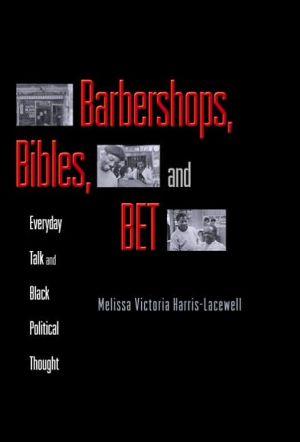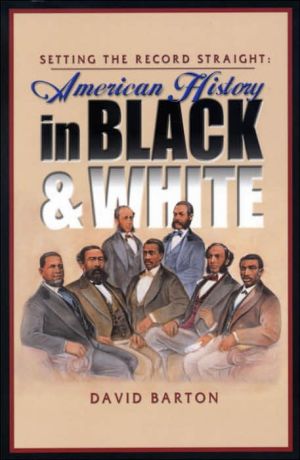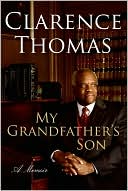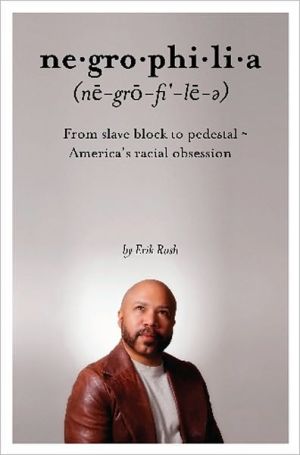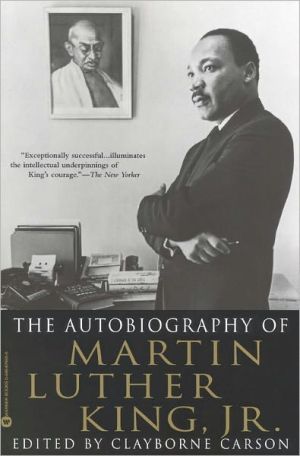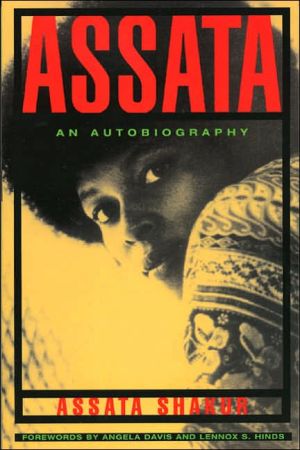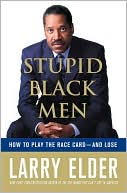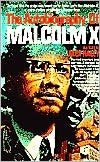Barbershops, Bibles, and BET: Everyday Talk and Black Political Thought
What is the best way to understand black political ideology? Just listen to the everyday talk that emerges in public spaces, suggests Melissa Harris-Lacewell. And listen this author has—to black college students talking about the Million Man March and welfare, to Southern, black Baptists discussing homosexuality in the church, to black men in a barbershop early on a Saturday morning, to the voices of hip-hop music and Black Entertainment Television.\ Using statistical, experimental, and...
Search in google:
"While sociologists have produced wonderful ethnographic works on the black community, few have explained the political relevance of discourse in these communities. Harris-Lacewell links public discourse with ideology formation and political behavior in a way that is compelling, new, and important."--Andrea Simpson, University of Richmond, author of The Tie that BindsChoiceThe book convincingly demonstrates that there are many aspects of black ideology and opinion, a fact that is necessarily overlooked in conventional analyses of voting patterns, partisan affiliation, or interest group involvement.
Barbershops, Bibles, and BET\ Everyday Talk and Black Political Thought \ \ By Melissa Victoria Harris-Lacewell \ Princeton University Press\ Melissa Victoria Harris-Lacewell\ All right reserved.\ ISBN: 0691114056 \ \ \ Chapter One\ EVERYDAY TALK AND IDEOLOGY\ Say it loud: "I'm Black and I'm proud."\ -James Brown, 1968\ \ Instead of a closing-ranks mentality, a prophetic framework encourages a coalition strategy with those deeply committed to antiracist struggle.\ -Cornel West, 1993\ \ They have journeyed through the pothole-ridden road of liberal promises and found it ends in a frustrating dead end.\ -Black and Right, 1997\ \ Whoever walked behind anyone to freedom? If we can't go hand in hand I don't want to go.\ -Hazel Scott, 1974\ \ BLACK PEOPLE come together to worship; organize around communal problems; sit together to cut and style one another's hair; pass news about each other through oral and written networks; and use music, style, and humor to communicate with each other. Along with the intimacies of family and the responsibilities of work, these are the everyday spaces of black people's lives. Yet, with the exception of the church, these everyday contexts of black interactions have largely escaped the notice of social scientists studying the politics of black communities. To more fully appreciate the political thought and action of African Americans, it is imperative to understand that these interactions are more than social. They are the spaces where African Americans jointly develop understandings of their collective interests and create strategies to navigate the complex political world. These strategies are best understood as ideologies, tied to a black intellectual tradition and alive in contemporary African American public opinion. The study of everyday talk in spaces of ordinary black life provides a framework for understanding what African Americans think and the mechanisms of how black people develop political attitudes.\ If we are to understand the genesis and development of political thought among African Americans it is important, but insufficient, to study the fully articulated ideological utterances of black elites. It is important, but insufficient, to map the extraordinary instances of mass-based social movements. It is important, but insufficient, to apply, without revision, models of American public opinion primarily designed to investigate the attitudes of white Americans. It is important, but insufficient, to study the influence of family and childhood socialization on individual attitudes. Understanding African American political attitudes requires an analysis of seemingly mundane interactions and ordinary circumstances of daily black life, because it is in these circumstances that African Americans often do the surprising and critical work of constructing meaningful political worldviews. Through worship, discussion, music, laughter, and news, African Americans construct meaning from the ordinary. Therefore, one important element in understanding how black people interpret and make sense of the political world is to listen in on their everyday talk.\ That discourse is central to the work of politics is an old notion. Critical theorists, largely within their work on the public sphere, have argued for the essential role of citizen conversation in cultivating democratic attitudes and action (Tocqueville 1835; Arendt 1958; Habermas 1962; Eagleton 1985; Herbst 1994; Putnam 2000). Mansbridge (1999) locates the everyday talk of citizens at the center of the deliberative political system. She calls attention to this system of interactions that anchors democratic processes and argues that everyday talk is as important as formal deliberation to producing creative and just governance. Engaging in either purely expressive or more goal-directed conversations in protected spaces allows citizens to identify conflicts, better understand their interests, and learn whether or not their interests contribute to a common good.\ Gamson empirically demonstrates the significance of ordinary citizen interaction and argues that the study of American public opinion is plagued by a serious deficiency in its failure to account for these interactions. Referencing the collective knowledge of decades of public opinion scholarship, Gamson notes, "We do understand a lot about the end product-the content of opinions they [the American public] express. But on how they get there, on what the issues mean to people, and how they reach their conclusions, we are still groping" (1992, xi). For Gamson, political talk supplies the answers to these unsolved puzzles of public opinion. Listening to people talk about politics, he argues, "allow[s] us to observe the natural vocabulary with which people formulate meaning about issues" (192), and thus to explore the ways that citizens are able to make sense of political issues about which they appear to have little information. Sociologist Nina Eliaoph argues that neither the theoretical contributions of critical theorists nor the empirical work of social scientists have gone far enough in studying the politics of citizen talk because "none of these works have analyzed actual political conversations as they unfold in real time, within existing groups, circulating across a range of everyday life spaces" (1996, 263).\ This book makes progress toward the goal of better understanding how ordinary deliberative processes contribute to the work of democratic politics. Using the specific case of African Americans and employing a number of social scientific methods of inquiry, it offers both a theoretical and empirical exploration of ordinary black people's political attitudes and the processes that contribute to their development. This study both identifies several unique patterns of public opinion among African Americans that can be understood as expressions of black political ideology and uses an analysis of black organizations, public spaces, and information networks to suggest the ways that African Americans (re)produce these ideologies when they interact with one another. Ordinary spaces of everyday talk among African Americans serve as forums for dialogue that contribute both to the development of individual ideological dispositions and to the revisions of ideologies across time. A study of ideology formation through this talk demonstrates that engaging in black community dialogue is a distinct process that affects ideology separately from the impact of socioeconomic or demographic variables and shows that black political thought can be understood more fully through an analysis of the ways that African Americans use conversation to engage in ideological construction.\ AFRICAN AMERICAN COUNTERPUBLIC\ There is no better place to begin an empirical study of the relevance of everyday talk to American politics than among African Americans. Studies of black political participation have demonstrated the historic and continued importance of a communal approach to political life among African Americans (Campbell et al. 1960; Dawson 1994; Tate 1993). African American cultural and political life is shaped by a reliance on and respect for oral communication (Henry 1990; Levine 1977). Because black politics is traditionally marked by communalism and orality, the "search for black ideology must begin with the oral tradition" (Henry 1990, 7). It must begin with the study of the conversatin', shit talkin', gab fest, rap sessions, where black people are just kickin' it on the set. Such a study is situated squarely within the concerns raised by James Scott (1985, 1990) and Robin Kelley (1994) about the ways that subjugated members of society resist hegemony.\ Scott (1990) locates resistance to political, cultural, and ideological hegemony among the daily acts of the relatively powerless. While the social movements literature tells us about what happens in extraordinary circumstances when marginalized members of society directly confront oppressive forces,1 Scott's contribution is to allow us to glimpse how normal circumstances contribute to hidden modes of resistance. Scott juxtaposes public and hidden transcripts and encourages close observation of the acts, language, and symbols of the hidden narratives acted out offstage. The study of the everyday allows entry into the world where the "ordinary weapons of powerless groups" are forged. The study of African Americans interacting with one another apart from whites is in the spirit of Scott's concerns with how the subjugated develop distinct political realities that often counter the hegemonic narratives of the powerful.\ Robin Kelley takes up this project in Race Rebels, where he explicitly links Scott's theory of the hidden transcript to daily acts of African American resistance in the Jim Crow South and contemporary urban spaces. Kelley delineates black working-class resistance of both white domination and black middle-class cultural norms. Articulating why the everyday illuminates the politics of African Americans, Kelley firmly rejects "the tendency to dichotomize people's lives, to assume that clear-cut 'political' motivations exist separately from issues of economic well being, safety, pleasure, cultural expression, sexuality, freedom of mobility, and other facets of daily life. Politics is not separate from lived experience or the imaginary world of what is possible; to the contrary, politics is about these things" (1994, 10).\ Both Scott and Kelley offer an important reconceptualization of the behavior of subjugated populations and of politics. Foot dragging, sabotage, and dissembling can be understood as weapons of resistance used by those without access to conventional forms of power and influence, rather than seen as pathological behavior by lesser members of the polity. Politics can be found hidden in the zoot suits, rap lyrics, and broken milkshake machines of the black working class. While this text is not primarily interested in acts of resistance per se, it is interested in discourse that occurs as part of creating the hidden transcript.\ In black public spaces, in black organizations, and through black information networks, African Americans enter into dialogue with one another. Much of what they discuss is task-specific, personal, or frivolous. Church members plan choir rehearsal. Friends share stories about their families. Neighbors gossip. Sports fans argue about what team will win on Friday night. But alongside these kinds of conversations is an everyday talk that helps black people to develop collective definitions of their political interests. Embedded within conversations that are not always overtly political is language that seeks to understand American inequality, to define the importance of race in creating inequality, to determine the role of whites in perpetuating inequality, and to devise strategies for advancing the interests of self and group. It often does so through the use of personal anecdote, urban legend, and tall tales, but the work of this everyday talk is serious. By uncovering how ideology is developed by black people talking to one another in their daily lives, we can better describe, analyze, and predict variation in African American political thought.2\ Scholars have long been interested in determining the ways that political culture is created and transmitted in identifiable communities. Habermas's (1984) theory of the bourgeois public sphere, where men engage in creating the politics of our "lifeworld," has been particularly influential in shaping contemporary discourse on the role of deliberation in the development of political worldviews. Both feminist and black studies scholars have critiqued his formulation of the public sphere as inappropriate for the study of marginalized publics. Feminist scholar Nancy Fraser critiques Habermas for idealizing the liberal public sphere because of his failure to account for competing public spheres, or counterpublics, that are not liberal, bourgeois, or male. "Virtually from the beginning, counterpublics contested the exclusionary norms of the bourgeois public, elaborating alternative styles of political behavior and alternative norms of public speech" (Fraser 1989, 116). For Fraser, the assumptions of deliberation that underlie Habermas' conception of a single public sphere are exclusionary and masculinist. Stratified societies are better served by a plurality of competing publics than a single deliberative arena governed by the discursive norms of the powerful. These subaltern counterpublics are "parallel discursive arenas where members of subordinated social groups invent and circulate counterdiscourses to formulate oppositional interpretations of their identities, interests, and needs" (1989, 123).\ Scholars of African American politics have also leveled critiques of the exclusionary Habermas formulation. These scholars have sought to define the African American counterpublic as a "sphere of critical practice and visionary politics, in which intellectuals can join with the energies of the street, the school, the church, and the city to constitute a challenge to the exclusionary violence of much public space in the United States" (Black Public Sphere Collective 1995). For scholars of black politics, Habermas's formulation does not adequately account for the ways that inequality alters discursive relations between citizens, nor does it speak to the ways that the relatively powerless are excluded from the idealized bourgeois space. "The bourgeois public sphere has a historically specific provenance and development; it cannot be simply mapped onto contemporary African American lifeworlds" (Holt 1995, 326). Scholars of black history, society, and politics have offered broader visions of the black counterpublic as an oppositional space composed of relatively autonomous spaces of civic life and culture.\ It is incorrect to conceive of the black counterpublic as historically static or as ideologically cohesive at any given historical moment. The churches, political organizations, news outlets, fraternal clubs, mutual aid societies, barbershops, juke joints, and labor unions that constitute the black counterpublic are internally contested spaces. Identities of gender, class, color, sexuality, and privilege crosscut the terrain of a racially homogenous public sphere. Fraser reminds us that even oppositional counterpublics are not always virtuous, "even those with democratic and egalitarian intentions are not always above practicing their own modes of informal exclusion and marginalization" (1989, 124). In pursuit of racial goals, black counterpublics have often sought to suppress the internal differences of gender, class, and sexual identity that mark blackness (Cohen 1999). Jane Mansbridge (1999) warns that deliberative processes can transform the "I" into "we" through an often invisible assertion of control by the more powerful members of the group. The African American counterpublic is vulnerable to such exclusionary practices. Thus the African American counterpublic itself spawns subaltern, oppositional publics organized around gender, class, color, and sexual identity.\ \ Continues...\ \ \ \ Excerpted from Barbershops, Bibles, and BET by Melissa Victoria Harris-Lacewell Excerpted by permission.\ All rights reserved. No part of this excerpt may be reproduced or reprinted without permission in writing from the publisher.\ Excerpts are provided by Dial-A-Book Inc. solely for the personal use of visitors to this web site. \ \
List of Tables ix List of Figures xi Acknowledgments xiii Introduction xvii Chapter One Everyday Talk and Ideology 1 Chapter Two Ideology in Action: The Promise of Orange Grove 35 Chapter Three Black Talk, Black Thought: Evidence in National Data 79 Chapter Four Policing Conservatives, Believing Feminists: Reactions to Unpopular Ideologies in Everyday Black Talk 110 Appendix 4.1 153 Appendix 4.2 157 Chapter Five Truth and Soul: Black Talk in the Barbershop Written with Quincy T. Mills 162 Chapter Six Speaking to, Speaking for, Speaking with: Black Ideological Elites 204 Chapter Seven Everyday Black Talk at the Turn of the Twenty-first Century 250 Notes 265 Bibliography 287 Index 313
\ Ethnic and Racial Studies\ The book impressively weaves multiple research methods to provide a comprehensive understanding of black political ideology. . . . By following Harris-Lacewell's example of paying close attention to the intersection of race and other forms of social stratification, we could better understand how the meaning of blackness and the 'Black agenda' is constructed within the black community.\ — Patricia Hill Collins\ \ \ \ \ Perspectives on Politics - Richard Iton\ [A]n invaluable addition to the African American politics canon. . . . [This book] is well written and original in its conception, and it represents a remarkable achievement. It will undoubtedly generate more work in the future that probes the sources and character of black political thought, as well as the ability of ordinary black folk to think for themselves.\ \ \ Ethnic & Racial StudiesThe book impressively weaves multiple research methods to provide a comprehensive understanding of black political ideology. . . . By following Harris-Lacewell's example of paying close attention to the intersection of race and other forms of social stratification, we could better understand how the meaning of blackness and the 'Black agenda' is constructed within the black community.\ \ \ \ \ Perspectives on Politics[A]n invaluable addition to the African American politics canon. . . . [This book] is well written and original in its conception, and it represents a remarkable achievement. It will undoubtedly generate more work in the future that probes the sources and character of black political thought, as well as the ability of ordinary black folk to think for themselves.\ — Richard Iton\ \ \ \ \ ChoiceThe book convincingly demonstrates that there are many aspects of black ideology and opinion, a fact that is necessarily overlooked in conventional analyses of voting patterns, partisan affiliation, or interest group involvement.\ \ \ \ \ Ethnic & Racial StudiesThe book impressively weaves multiple research methods to provide a comprehensive understanding of black political ideology. . . . By following Harris-Lacewell's example of paying close attention to the intersection of race and other forms of social stratification, we could better understand how the meaning of blackness and the 'Black agenda' is constructed within the black community.\ — Patricia Hill Collins\ \
